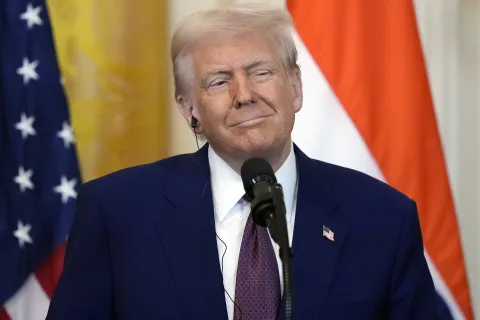The aggressive trade policies championed by former US President Donald Trump have reignited a global debate on national sovereignty and the nature of international alliances. His approach, characterized by the imposition of substantial tariffs and overt demands for political compliance, compels nations to reconsider their relationships with Washington. This period marks a critical juncture for international relations, challenging long-held assumptions about multilateral cooperation and the balance of global economic power, making the concept of an independent foreign policy increasingly appealing.
Historically, the United States has frequently leveraged its economic might to influence the political landscapes of other countries. This pattern dates back to significant events such as the 1947 “exclusion crises,” where European governments were pressured to remove communist partners, and the concerted efforts to destabilize Salvador Allende’s government in Chile. Furthermore, the enduring blockade against Cuba serves as a stark reminder of how trade and aid have been weaponized, often controversially, to achieve foreign policy objectives.
What sets Donald Trump’s tariff drive apart is its unprecedented explicitness. He openly ties trade concessions and “favors” to unrelated political compliance, treating foreign dignitaries more like vassals in a court than sovereign leaders. His preference for meeting in private estates like Mar-a-Lago or golf clubs underscores a transactional and personal approach to international diplomacy, blurring the lines between statecraft and personal prerogative, and significantly impacting global economics.
Concrete examples illustrate the direct political leverage exerted through these tariffs. Canada faced a 35 percent tariff, reportedly as retribution for its stance on recognizing the state of Palestine, while Brazil’s higher tariffs were linked to its refusal to drop legal action against a former president. Such actions plainly reveal that the cost of maintaining a “friendly” relationship with the US under this administration is an overt surrender of national sovereignty.
The responses from traditional US allies have varied dramatically. British ministers celebrated a trade deal, yet critics, like Allan Beattie, likened it to a “protection payment to a mob boss.” The European Union’s encounter was equally striking, involving a meek acceptance of hefty tariffs on its exports while simultaneously agreeing to eliminate tariffs on US imports. In stark contrast, China’s strategy of reciprocating tariffs and maintaining resilience ultimately secured more favorable concessions from Trump, prompting questions about the benefits of allegiance to the US camp.
The pervasive argument in many European capitals—that access to the world’s largest market necessitates appeasement—is increasingly seen as short-sighted. This perspective fails to account for the long-term decline of the US economy relative to rising global powers, particularly China. As the global South increasingly reshapes world economics, the rationale for enduring an “abusive” relationship with an unpredictable and demanding partner becomes less compelling for nations seeking true national sovereignty.
This economic realignment is compounded by significant shifts in the political sphere. The burgeoning Palestine movement, for instance, has generated a notable divergence from traditional US alignment, pushing for an independent foreign policy. New political initiatives, spearheaded by figures like Jeremy Corbyn and Zarah Sultana, aim to re-center arguments for peace and socialism in national discourse, challenging the conventional wisdom of a slavish transatlantic alliance.
The daily humiliation faced by advocates of a dependent transatlantic alliance, stemming from the patronizing behavior of a US president deeply unpopular in many allied nations, further underscores the urgent need for change. It is imperative that countries initiate a genuine debate about their roles within the imperialist structure, demanding an independent foreign policy that actively welcomes, rather than resists, the complexities and opportunities presented by an emerging multipolar world.






Leave a Reply